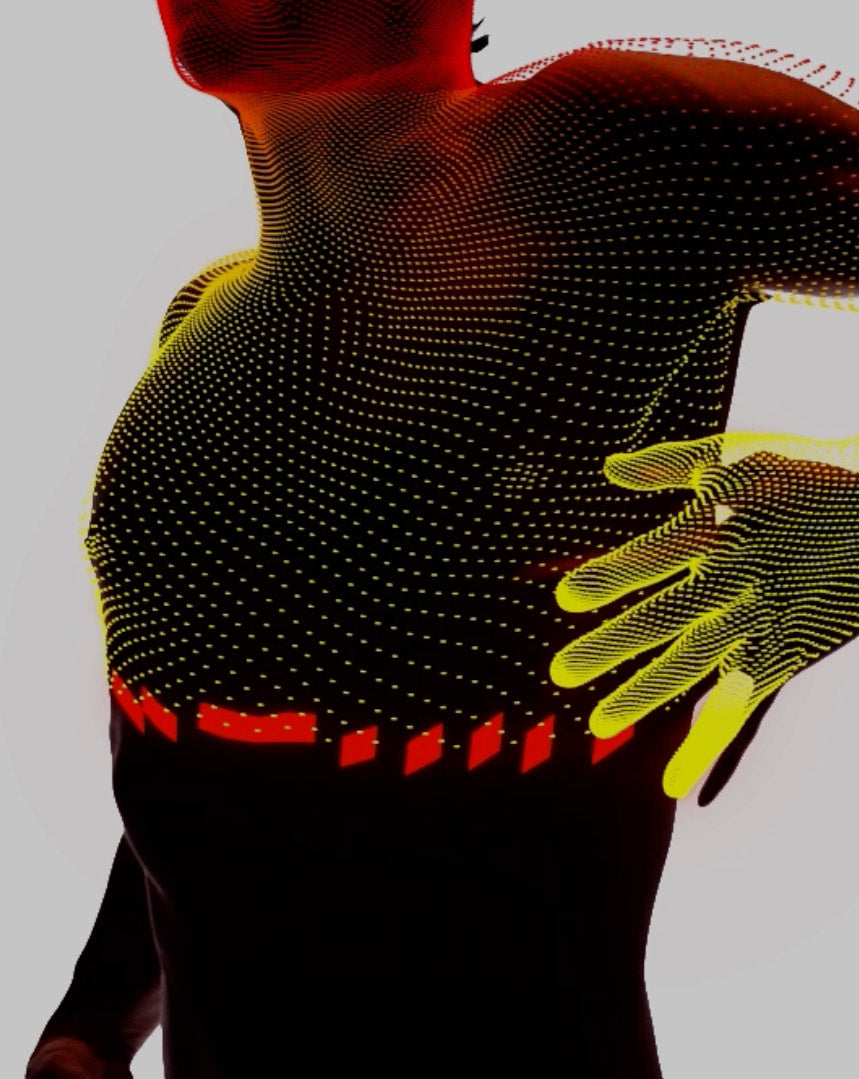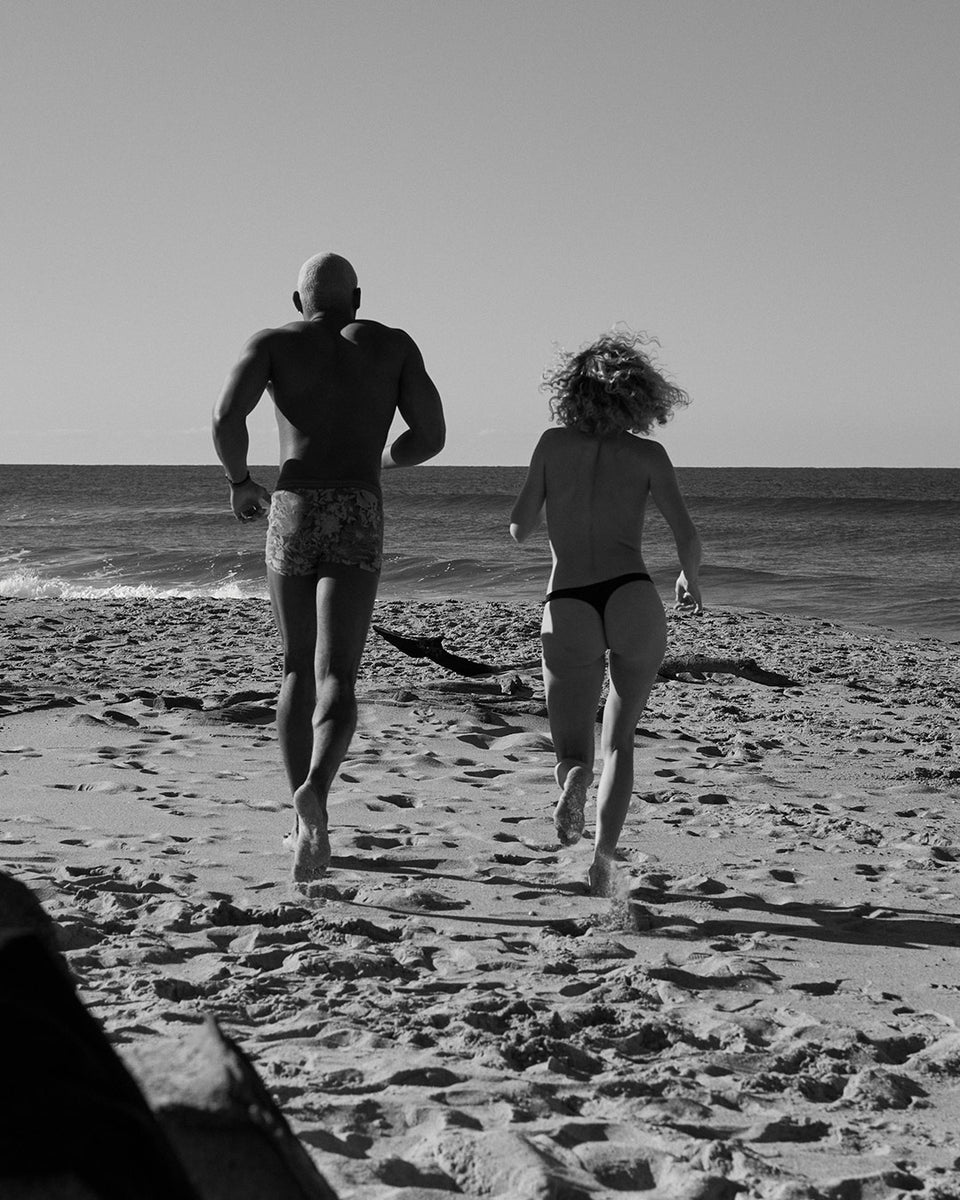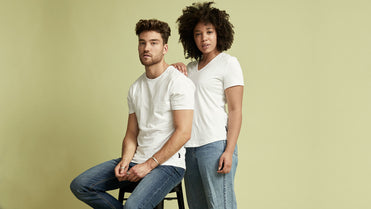The 'Made in Australia' logo is a source of pride for many brands, and rightly so. The iconic gold kangaroo on a green triangle is burnt into the national consciousness right alongside the baggy green cricket cap and our Olympic trackies.
It’s a signal of quality and self-reliance that, all other things being equal, makes the purchase decision that much easier - what monster doesn't want to support their fellow Aussies?!?
For many consumers it's also synonymous with 'ethically made'. But whilst Australia does have stronger labour laws protecting workers than many other countries, that doesn't mean we're off the hook.
No peace on the piece rate

Greed and exploitation are universal, and our sunburnt country is sadly no exception.
If we asked you to picture a sweatshop, you might think of Rana Plaza or any number of other hot, over-crowded factories in Bangladesh (or China or Indo) full of women sewing under shoddy lighting.
And you wouldn’t be wrong.
But you might also be thinking that these kinds of human rights violations in the fashion industry are exclusive to these sorts of circumstances. And in that case, you would be wrong.
In Australia, some of the most at-risk people are migrants and low-income communities who work from home in the living room or garage. Often considered an 'invisible workforce' because they are outsourced and often several times removed from the actual brand making the order.
A huge problem for these workers is the ‘piece rate’ system where they are paid a fixed amount for every piece made, instead of the legal hourly minimum. This incentivises speed (and mistakes) over safety. And whilst in theory the piece rate should align with minimum wage, in practice piece rates are largely used to purposely underpay.
There’s hard yakka, and then there’s exploitation

“You don’t have the protections when you’re working from home. You take what’s given and sometimes the price is whatever they decide.” – Ms Ky, home worker
At the height of the pandemic, the ABC reported that one Australian worker was asked to sew face masks for 80 cents each. Ms Ky, a Vietnamese migrant who has lived here for 25 years, did the maths and worked out that she’d be making $7 per hour at that rate, or about 33% of the minimum hourly wage of $20.41.
What’s more, this $7 / hour would need to cover not only her time, but also maintenance of her machinery as well as the electricity – because she would have bought it all herself.
Because it was a rush order requiring weekends, Ms Ky managed to negotiate about $3 per piece for the 300 masks. The employer accepted but afterwards, he hung Ms Ky out to dry, moving on to find someone he could pay even less.
No wonder Ms Ky has been quoted as saying that employers sometimes “take advantage” and that “You don’t have the protections when you’re working from home. You take what’s given and sometimes the price is whatever they decide.”
Brands are hiding their dirty laundry

“Companies know they’re doing the wrong thing, but they think no one will ever find out because the worker is hidden and can’t speak English” – Beth Macpherson, CFMEU
Now, we’re not for a second saying that everyone using the Made in Australia kangaroo is screwing workers under the piece rate system. But there are Aussie brands that we know and love tied up in similar kinds of exploitation preying on a vulnerable community – particularly women of colour from China and Vietnam (making this a feminist and racial justice issue as well.)
“Companies know they’re doing the wrong thing, but they think no one will ever find out because the worker is hidden and can’t speak English”, says Beth Macpherson, the CFMEU’s national compliance offer for textiles, clothing and footwear in Australia.
Unless brands are transparent about who makes their clothes, it's impossible to know what's really going on. And in fact, supply chains that aren’t transparent, normally are that way for a reason. Hint: they’re probably hiding something from you, even if they might not know exactly what it is.
Don’t lose hope

Certified B Corporations are a new kind of business that balances purpose and profit. They are legally required to consider the impact of their decisions on their workers, customers, suppliers, community, and the environment.
This is all pretty bleak, and while it’s only scratching the surface of what goes on in the Aussie fashion industry, we promise there’s lots to love too!
Here at Citizen Wolf we are one of many proudly Ethical Clothing Australia certified, ensuring that we both provide a safe place to work at our factory and that we pay our workers a living wage. In real terms and depending on experience, that's between $22.46 - $29.83 / hour base (exc. super, leave and loadings), which is approximately 10 - 50% above Australia's minimum wage.
We are also one of only 10 B Corp certified apparel brands in Australia, ensuring that we prioritise both people and planet alongside profit and our community at the heart of our business decisions.
Certifications like these are super helpful when shopping, because they guarantee that brands’ supply chains have been independently audited as doing the right thing.
Basically, you don’t need to take our word for it, because we’ve been fact-checked.
So what can you do?
There's a few really simple things you can do to ensure you're not being fooled into thinking something is ethical just because it has been made here in Australia:
- Check for legit independent certifications like B Corp and Ethical Clothing Australia
- Ask brands questions about who makes their clothes, how they are paid and how they are treated – and take any lack of information as wrongdoing (known or otherwise)
- Buy less stuff – yep, the irony isn’t lost on us but the short story is that we all need to consume less and doing so also helps you buy better because you’re not wasting money on crap that doesn’t go the distance.







